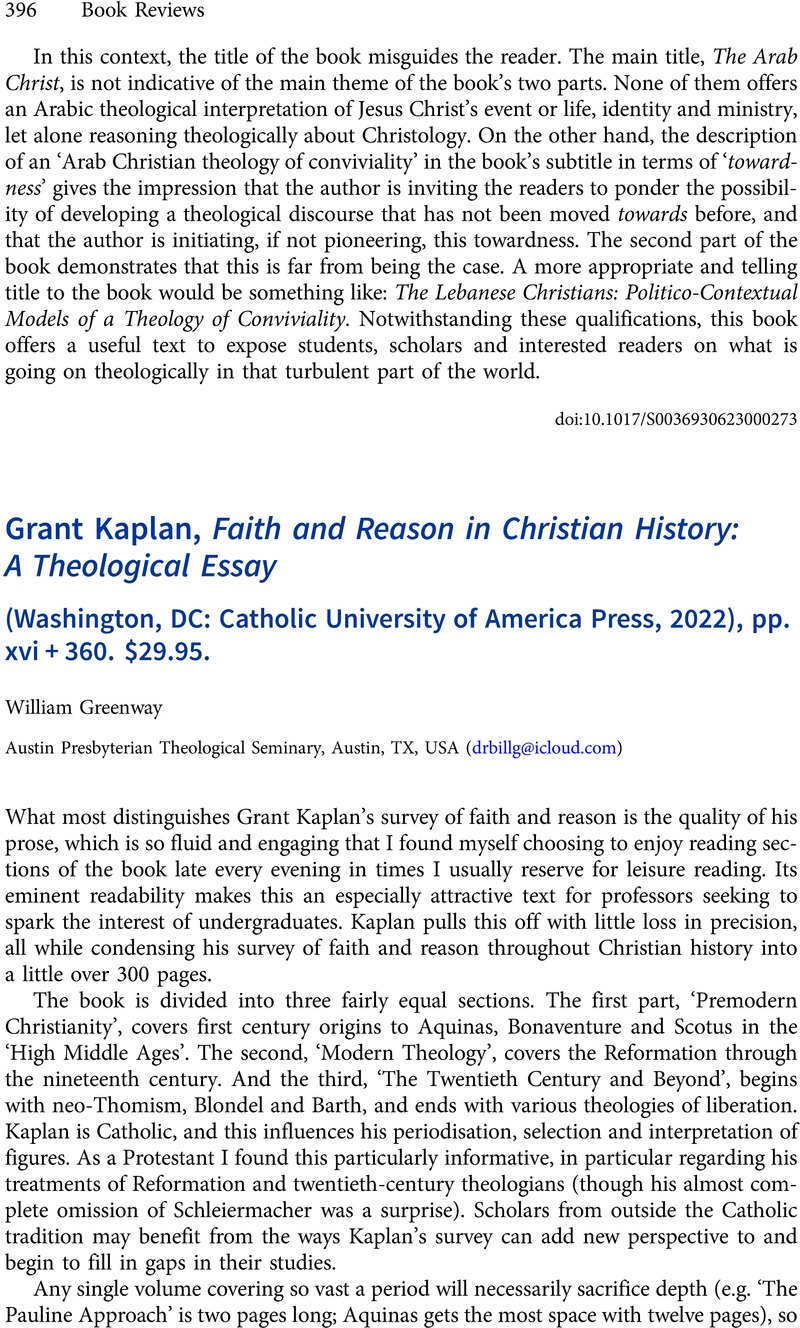No CrossRef data available.
Article contents
Grant Kaplan, Faith and Reason in Christian History: A Theological Essay (Washington, DC: Catholic University of America Press, 2022), pp. xvi + 360. $29.95.
Review products
Grant Kaplan, Faith and Reason in Christian History: A Theological Essay (Washington, DC: Catholic University of America Press, 2022), pp. xvi + 360. $29.95.
Published online by Cambridge University Press: 02 August 2023
Abstract
An abstract is not available for this content so a preview has been provided. Please use the Get access link above for information on how to access this content.

- Type
- Book Review
- Information
- Copyright
- Copyright © The Author(s), 2023. Published by Cambridge University Press



